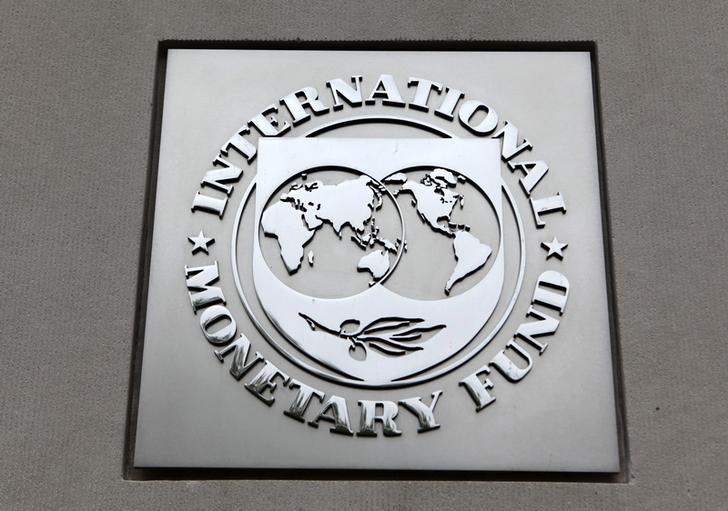Latest NEWS
- Aswat Masriya, the last word
- Roundup of Egypt's press headlines on March 15, 2017
- Roundup of Egypt's press headlines on March 14, 2017
- Former Egyptian President Hosni Mubarak to be released: lawyer
- Roundup of Egypt's press headlines on March 13, 2017
- Egypt's capital set to grow by half a million in 2017
- Egypt's wheat reserves to double with start of harvest -supply min
- Roundup of Egypt's press headlines on March 12, 2017
Egypt to ask IMF for first 'Article IV' consultations in 3 years

The International Monetary Fund (IMF) logo is seen at the IMF headquarters building during the 2013 Spring Meeting of the International Monetary Fund and World Bank in Washington, April 18, 2013. REUTERS/Yuri Gripas
CAIRO, Sept 13 (Reuters) - Egypt will ask the IMF for a long-delayed economic assessment in the hope of improving the country's image before a February investment conference, the finance ministry said in a statement.
The government said it wants the results published before the Egypt Economic Summit in Sharm el-Sheikh, a conference to boost investment in an economy battered by years of political turmoil and a lack of investor confidence.
"We hope that the (IMF) report comes in favour of Egypt and contributes to the return of foreign flows, either directly as investments in the real economy or indirectly by improving the stock market," the finance ministry statement said.
Egypt has not held Article IV consultations, where IMF experts assess a country's financial and economic state of affairs, since March 2010, according to the IMF.
The consultations scheduled for a year later were postponed after President Hosni Mubarak was overthrown in February 2011.
Mubarak's ouster and the political turmoil that followed it triggered a sharp decline in foreign investment and tourism revenues, hammering the country's economy.
The unemployment rate is 13.4 percent, up from 9 percent in 2010, and 60 percent of youth are unemployed, the government said last week.
Officials forecast economic growth at just 3.2 percent in the fiscal year that began July 1, well below levels needed to create enough jobs for a rapidly growing population and ease widespread poverty.
A successful investment conference might help the government push through reforms needed to reach agreement on a loan package with the International Monetary Fund.
An IMF deal could then improve confidence among investors, who have been unnerved both by years of turmoil and by a host of other problems, ranging from costly energy subsidies to lack of transparency in economic management.
Gulf states, which have been planning the conference since April, have taken a keen interest in seeing Egypt, the largest Arab state, get back on its feet.
The UAE, Saudi Arabia and Kuwait have provided more than $12 billion in cash and petroleum products to prop up Egypt's economy since the ouster of Islamist President Mohammed Mursi last year.
They see Egypt as the front line in the battle against the Muslim Brotherhood, and want to see the current government of President Abdel Fattah el-Sisi succeed after he toppled Mursi.
The Brotherhood's populist platform helped it triumph in post-Mubarak elections, but its political Islam puts the group directly at odds with the Gulf monarchies' dynastic rule.
Gulf countries also want to ensure aid and investment are spent efficiently in a country where past leaders with military backgrounds have often mismanaged the economy.
Cash transfers from the Gulf have helped shore up Egypt's foreign currency reserves in recent months, which reached $16.836 billion in August. But reserves are still less than half the $36 billion held before the 2011 uprising against Mubarak. (Editing by Dominic Evans)










